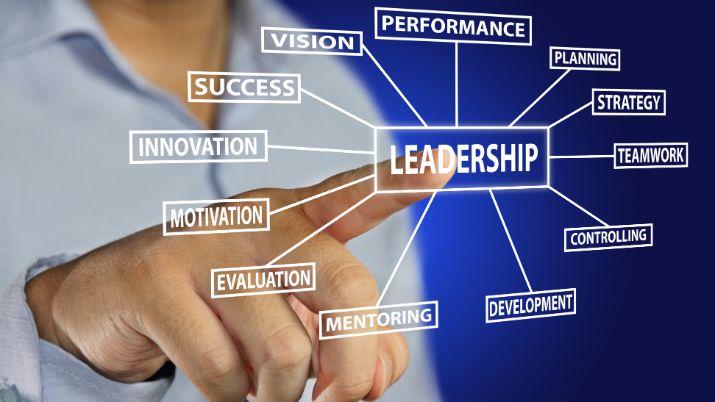Mastering Communication: Improving Your Leadership Abilities
Within today's rapidly changing and continuously developing corporate environment, effective leadership has grown to be increasingly important than ever. The capacity to lead a team with confidence and clarity can greatly impact an organization's success. Nevertheless, growing into an outstanding leader is not an innate skill; it is developed through commitment, practice, and a dedication to personal growth. As workers work through the complexities of their roles, mastering key leadership skills becomes crucial in enhancing their capabilities and driving their teams towards achievement.
In this piece delves into the top 10 leadership skills that every individual should master, highlighting the importance of effective dialogue, emotional intelligence, and flexibility. We will explore how robust decision-making, active hearing, and the capacity to inspire and motivate a team can transform a manager into a genuine leader. Through grasping the nuances of conflict resolution, delegation, and establishing trust, readers will acquire insights on how to enhance their leadership skills. Join us as we reveal the crucial skills that not only shape effective leaders but also create environments where teams can prosper.
Critical Leadership Skills
Great management is built on a cornerstone of key skills that allow leaders to encourage, guide, and promote advancement in their workforces. One of the most important vital abilities is strong communication, which functions as the cornerstone of successful management. Leaders who share information effectively can express their goals and engage their teams, and drive cooperation. This competence not only includes transmitting information clearly but also includes the skill to pay attention well and reply to input, creating an transparent dialogue that bolsters bonds.
Another vital ability is emotional awareness, which allows leaders to comprehend and regulate their feelings and those of their team members. With advanced emotional intelligence, leaders can navigate challenging situations with understanding, address conflicts more efficiently, and encourage their teams even in challenging times. This skill allows leaders to connect on a one-on-one level, creating loyalty among colleagues. The skill to notice and engage to emotional cues can enhance a workplace and improve overall group productivity.
Flexibility is also a necessary ability for contemporary leaders confronting constant change and varying circumstances. Staying adaptable enables leaders to stay flexible in their strategy, modify plans when necessary, and embrace new concepts. This competence fosters new thinking and helps teams prosper in a fast-paced context. Leaders who model flexibility motivate their members to be flexible and resilient, building a climate of perpetual improvement and learning.
Creating Effective Group Interactions
Establishing a positive team culture is crucial for all leader looking to reach common goals and foster a positive working environment. Clear communication functions as the bedrock for developing trust and collaboration among team members. By encouraging open dialogue, leaders can create an environment where all members feels valued and recognized. This transparency not only enhances relationships but also leads to improved problem-solving as team members become empowered in sharing their ideas and concerns.
Another crucial aspect of strong team dynamics is adaptability. In the current fast-paced world, teams must be nimble enough to react to changes and challenges as they arise. Leaders should foster a culture of flexibility, inviting team members to embrace change rather than fight it. By demonstrating adaptable behaviors, leaders can urge their teams to handle uncertainty with strength and creativity, ultimately improving their collective effectiveness.

Finally, fostering a sense of belonging and inclusivity within the team enhances team dynamics immensely. When leaders intentionally seek to appreciate and celebrate the diverse backgrounds and perspectives of their team members, they build stronger bonds and enhance collaboration. This inclusivity not only drives innovation but also guarantees that all voices are heard, which brings about better decision-making and a more engaged, motivated team.
Fostering Growth and Creativity
To enhance leadership effectiveness, fostering a climate of development and innovation is vital. This involves creating an environment where team members feel safe to express their ideas and take considered risks. When Learn here promote trial and error and regard failures as educational opportunities, they enable their teams to stretch boundaries. This not only ignites creativity but also boosts engagement, allowing team members to contribute meaningfully to the organization's mission.
Furthermore, great leaders focus on the growth of their team members' abilities, supplying resources and assistance essential for personal and professional growth. Regular feedback and coaching sessions can function a critical role in this journey. By promoting a lifelong learning mindset, leaders can tap into their team's capabilities and encourage innovative thinking that coordinate with strategic objectives. Investing time in mentorship supports develop future leaders and guarantees the organization stays adaptive in an ever-evolving environment.
Finally, accepting diversity and inclusion can substantially enhance creativity within teams. Different perspectives and backgrounds lead to more diverse ideas and answers. Leaders must actively seek out diverse opinions and create platforms for collaboration, as this diversity can spark creativity and drive better decision-making. By valuing diverse viewpoints, leaders not only encourage growth but also position their organizations to thrive in a challenging landscape.